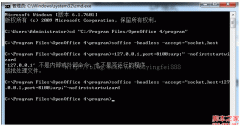浅析PHP编程中10个最常见的错误(5)
为了避免这些问题,检查一个数组是否为空最后的办法是用 count() 函数:
// Note that this work in ALL versions of PHP (both pre and post 5.0): $array = []; var_dump(count($array)); // outputs int(0) $array = new ArrayObject(); var_dump(count($array)); // outputs int(0)
在这顺便提一下,因为PHP中会将数值0认为是布尔值false,因此 count() 函数可以直接用在 if 条件语句的条件判断中来判断数组是否为空。另外,count() 函数对于数组来说复杂度为O(1),因此用 count() 函数是一个明智的选择。
再来看一个用 empty() 函数很危险的例子。当在魔术方法 __get() 中结合使用 empty() 函数时,也是很危险的。我们来定义两个类,每个类都有一个 test 属性。
首先我们定义 Regular 类,有一个 test 属性:
class Regular
{
public $test = 'value';
}
然后我们定义 Magic 类,并用 __get() 魔术方法来访问它的 test 属性:
class Magic
{
private $values = ['test' => 'value'];
public function __get($key)
{
if (isset($this->values[$key])) {
return $this->values[$key];
}
}
}
好了。我们现在来看看访问各个类的 test 属性会发生什么:
$regular = new Regular(); var_dump($regular->test); // outputs string(4) "value" $magic = new Magic(); var_dump($magic->test); // outputs string(4) "value"
到目前为止,都还是正常的,没有让我们感到迷糊。
但在 test 属性上使用 empty() 函数会怎么样呢?
var_dump(empty($regular->test)); // outputs bool(false) var_dump(empty($magic->test)); // outputs bool(true)
结果是不是很意外?
很不幸的是,如果一个类使用魔法 __get() 函数来访问类属性的值,没有简单的方法来检查属性值是否为空或是不存在。在类作用域外,你只能检查是否返回 null 值,但这并不一定意味着没有设置相应的键,因为键值可以被设置为 null 。
相比之下,如果我们访问 Regular 类的一个不存在的属性,则会得到一个类似下面的Notice消息:
Notice: Undefined property: Regular::$nonExistantTest in /path/to/test.php on line 10
Call Stack:
0.0012 234704 1. {main}() /path/to/test.php:0
因此,对于 empty() 函数,我们要小心的使用,要不然的话就会结果出乎意料,甚至潜在的误导你。






